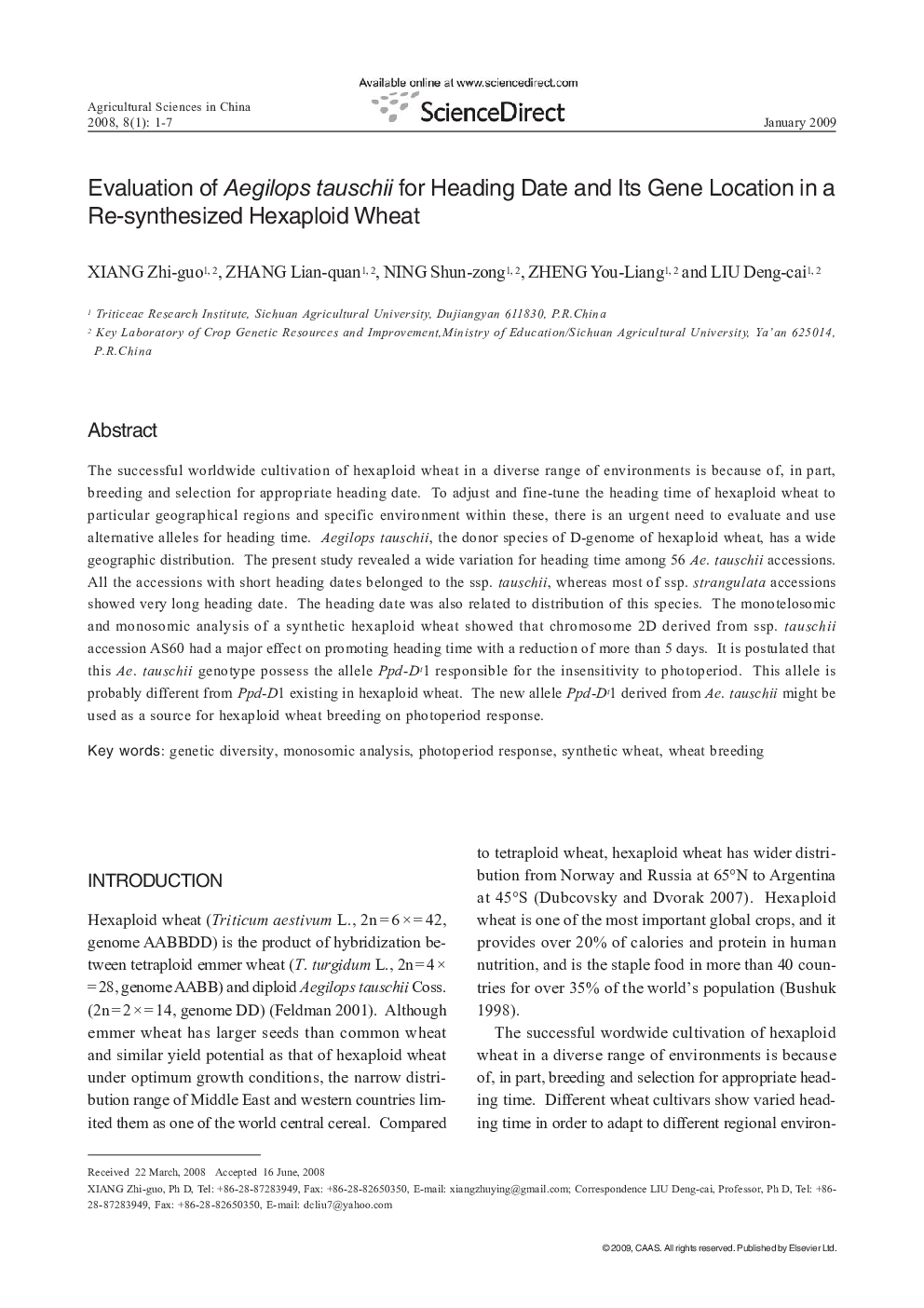| Article ID | Journal | Published Year | Pages | File Type |
|---|---|---|---|---|
| 4490480 | Agricultural Sciences in China | 2009 | 7 Pages |
The successful worldwide cultivation of hexaploid wheat in a diverse range of environments is because of, in part, breeding and selection for appropriate heading date. To adjust and fine-tune the heading time of hexaploid wheat to particular geographical regions and specific environment within these, there is an urgent need to evaluate and use alternative alleles for heading time. Aegilops tauschii, the donor species of D-genome of hexaploid wheat, has a wide geographic distribution. The present study revealed a wide variation for heading time among 56 Ae. tauschii accessions. All the accessions with short heading dates belonged to the ssp. tauschii, whereas most of ssp. strangulata accessions showed very long heading date. The heading date was also related to distribution of this species. The monotelosomic and monosomic analysis of a synthetic hexaploid wheat showed that chromosome 2D derived from ssp. tauschii accession AS60 had a major effect on promoting heading time with a reduction of more than 5 days. It is postulated that this Ae. tauschii genotype possess the allele Ppd-Dt1 responsible for the insensitivity to photoperiod. This allele is probably different from Ppd-D1 existing in hexaploid wheat. The new allele Ppd-Dt1 derived from Ae. tauschii might be used as a source for hexaploid wheat breeding on photoperiod response.
